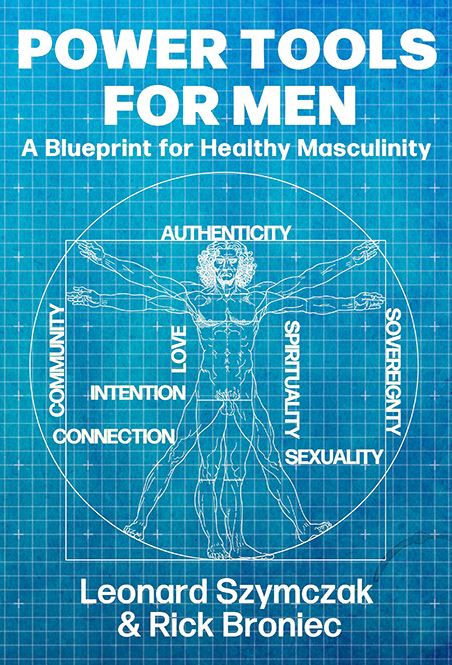In an Age of Super Heroes, Where are the Fathers?

The Avengers Endgame movie that was recently released brought in over a billion dollars the first week. A few of the male Super Heroes had children. This was a sharp contrast to Avengers, The Age of Ultron, where Hawkeye was the only Avenger who was a father. But he left his pregnant wife and two children at home so he could join the team and “save the world.” In Endgame Ironman, Antman, and Black Panther joined Hawkeye as fathers, but they left the caregiving of their children to the mothers while they, yet again, “saved the world.”
This model of fatherhood shows men leaving their children and demonstrating that their work is far more important and that violence is the way to overcome adversaries. Is this the message that we want fathers to convey to their children?
As a psychotherapist for the past 40 years, I have heard countless stories from clients about their fractured or non-existent relationships with fathers and about their longing to have a meaningful relationship with their dads. Children without a father clearly suffer. The statistics in America are horrifying: 72% of adolescent murderers, 70% of men in prison, 63% of youth suicides, 85% of children with behavior disorders, and 71% of high school dropouts grew up in homes without a father. It’s no wonder that 26 of the 27 deadliest mass shootings in America involved males who came from fatherless homes.
On the flip side, considerable research shows that loving, engaged fathers have a lifelong positive impact on their children’s development. Children with actively involved father figures during childhood are more likely to have higher levels of success in their careers, a better chance of having a strong, lasting marriage, and an improved ability to handle stress. They have higher self-esteem and lower levels of anxiety, depression, and behavior problems.
Since we know the incredible benefits of fathering and the consequences on children who don’t have fathers, why doesn’t our culture truly value fathering. Instead, we promote Super Heroes who leave the caregiving to mothers. Without healthy role models of emotionally engaged fathers, boys will adopt macho cultural images of masculinity and girls will desperately seek other men to fill the fathering void.
Super Hero movies may provide entertainment, but they don’t encourage men to be committed fathers. As Frederick Douglass once said, “It is easier to build strong children than to repair broken men.” We can build strong children by employing CPR to a father’s heart. CPR is an acronym for Challenge, Promote, and Reinforce.
CPR – Challenge
We must challenge the norms of our culture that primarily rewards a man for his achievements, accomplishments, and earning power, and offers little encouragement and support for men to be caretakers and nurturers of his children. The clear message of the Avengers movies is that taking care of children is women’s work and saving the world is men’s work.
As a fatherless son of a fatherless son, I felt compelled to break the cycle and be a far different father to my own children. In 1984 I lived in Sydney, Australia where I was faced with a decision that would forever alter my life and the life of my children. At the time, I was the director of a family therapy training program. My then wife, Marylou, was director of a multi-cultural school. We both had high pressure jobs that demanded our time and energy. However, those jobs took away precious time from our two young children. After long discussions with Marylou who had sacrificed her career when our children were born, I embraced the challenge to be a stay-at-home dad for a year.
There weren’t many models about fathers as caregivers (and still aren’t). Men in the neighborhood wondered if I was having a nervous breakdown because who in their right mind would give up their career for their children? What parent would stay at home, look after children, cook meals, and clean the house. Mothers are faced with that decision once they have children. But for men, that was an absurd idea back in the ‘80s. In some respects, it still is.
That experience made me realize how our society values and rewards men for spending long hours at work, seeking financial success and personal achievement while spending less time with their children. We must challenge those values and stress the importance of remaining actively engaged in raising our children. Doing so, has created changes in paternity leave and increased men’s rights in divorce. other areas. Many men’s bathrooms now have change tables whereas when my children were young, they were noticeably absent. Still, it is rare to see men changing infants on the change table.
Once we challenge traditional masculine values, we continue to apply CPR with the P.
CPR – Promote
We must promote a model of fathering where men are emotionally engaged, actively involved, and more relational. Even if men separate or divorce their partners, they still can remain actively involved with their children. Active involvement does not mean being the disciplinarian. While children need limit-setting, they also need nurturance, love, and coaching.
Mark Zuckerberg, founder of Facebook took two months off work when his child was born. Likewise, fathers can push for paid paternity-leave policies so they can bond with their infants and establish a work-life balance. To maintain a competing edge in recruiting, American Express in 2017 expanded paid-leave benefits for both mothers and fathers to 20 weeks. We can learn from Sweden. They offer 480 paternity days during the first 12 years of a child’s life.
Men have been traditionally good at fixing problems. It’s time to promote healthy fathering which includes nurturing, communication, and positive active involvement. After we challenge the norms and promote healthy models of fathering, we continue with CPR and reinforce behaviors.
CPR – Reinforce
We can reinforce fathers’ active parenting by encouraging men to get involved with their children as early as possible, including pregnancy. This establishes a bond between father and child that will endure over time. As fathers help their children grow and develop, they will reinforce a healthy image of men who are involved in child-rearing.
My first men’s group in 1984 encouraged and supported my decision to be a stay-at-home dad. They reinforced my resolve to be the dad I always wished I had. It’s important that fathers stay connected with other fathers. This can occur even at work. At Twitter, fathers gather quarterly for “Dad’s Lunches” where they share parenting tips and discuss any concerns with their children.
Mothers can also reinforce their partner’s involvement with caretaking by allowing for a learning curve. Fathers will make mistakes but can learn from them. Mothers can teach and reinforce emotional intelligence and relational skills, areas where women tend to be more proficient.
In my mind, a true Super Hero practices CPR. He challenges the belief that women must be children’s sole caregivers, promotes emotional engagement, active involvement, and loving commitment to children, and reinforces ongoing parental relationships. This provides a far different endgame than the Avengers’ latest movie, namely healthy children with positive, loving relationships with their fathers.
.jpg)



